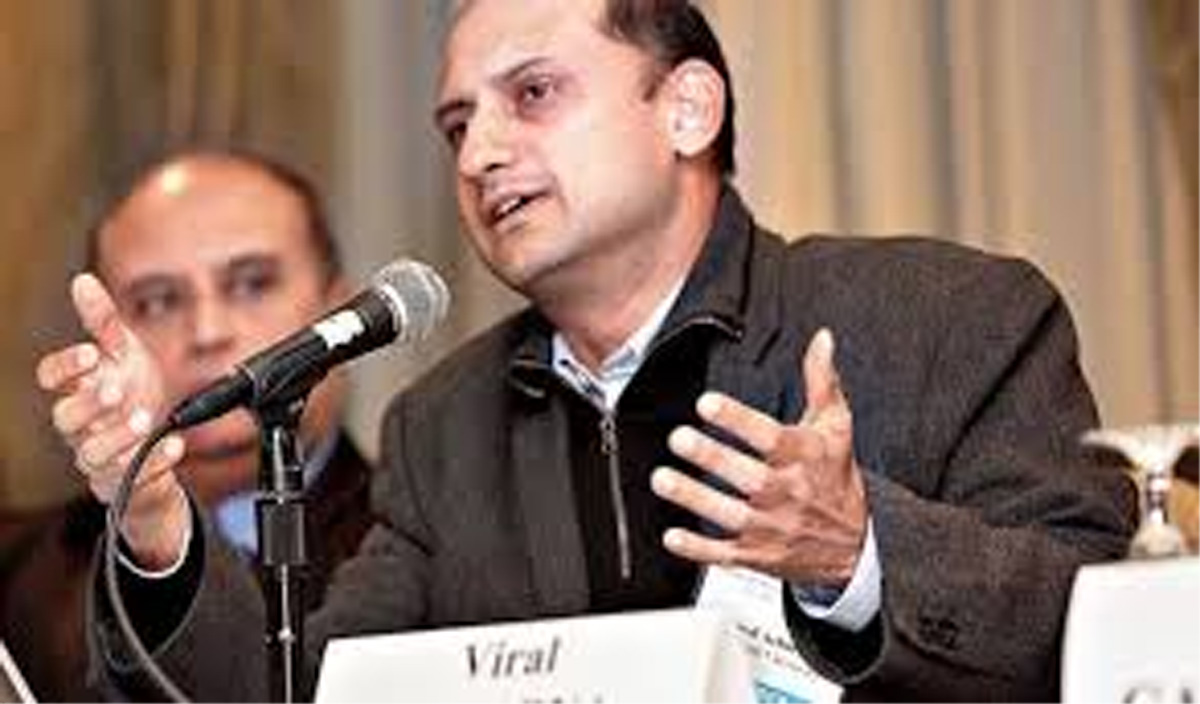MUMBAI, June 24: Viral Acharya was a strong
believer in the central banks independence and autonomy,
which he considered crucial for economic progress and
financial stability, and had even warned that any government
undermining their monetary authorities would face the wrath of
financial markets and economic fires.
Acharya, who has quit six months before his three-year
term as the deputy governor in-charge of the monetary policy
department ends, had said many nations are seeing the central
bank independence being compromised and asserted that
independent central bankers will remain undeterred.
The Reserve Bank has gone through a tumultuous time in
the past two and half years, starting with a change in
policymaking where rate-setting shifted to a six member panel
that experts commended as a step in the right direction, to
the surprise resignation of Governor Urjit Patel in December
2018.
Speculation about Acharyas exit had started on the
day of his boss resignation, forcing the RBI to deny it then.
Acharya went public with his thinking on the sensitive
topic of central bank independence during a speech at the peak
of the run-ins between the Mint Road and the Government that
culminated in Patels departure in December 10 last which
included specific mentions of points of differences like
government eying RBIs capital buffers.
Citing an Argentinian example, where governor Martin
Redrados resignation over differences with the government was
not taken kindly, Acharya had warned of the consequences that
await.
Governments that do not respect central banks
independence will sooner or later incur the wrath of financial
markets, ignite economic fires, and come to rue the day they
undermined an important regulatory institution; their wiser
counterparts who invest in central bank independence will
enjoy lower costs of borrowing, the love of international
investors, and longer life spans, he had said in the October
26, 2018 speech delivered in Mumbai.
He had further said that while the theme of
independence is of great sensitivity, it is of even greater
importance to our economic prospects.
Acharya, who will return to the New York Universitys
Stern Business School in august instead of in 2020, felt the
RBI has made good progress in earning its independence,
pointing to the formation of the rate-setting monetary policy
committee.
To secure greater financial and macroeconomic
stability, these efforts (like MPC) need to be extended to
effective independence for the Reserve Bank in its regulatory
and supervisory powers over public sector banks, its balance-
sheet strength, and its regulatory scope.
Such endeavor would be a true inclusive reform for the
future of our economy, Acharya had said in the same speech.
In the speech that was delivered over a month before
Patels resignation was made public and the subsequent
appointment of retired career bureaucrat Shaktikanta Das as
the governor, Acharya had said that appointing a non-
technocrat to a key position is among the ways in which the
independence is compromised.
Appointing government (or government-affiliated)
officials rather than technocrats to key central bank
positions, such as governor, and more generally, senior
management, is among the ways the institutional autonomy can
be undermined, he had said.
Others may include a steady attrition and erosion of
statutory powers of central bank, blocking a rules-based
approach and setting up parallel regulatory agencies with
weaker statutory powers, he had said.
Acharya, who was called as the poor mans Rajan,
over the many similarities with the former Governor Raghuram
Rajan who also left RBI against his wishes to continue, had
also warned of a talent crisis at a central bank if its
independence is seen to be compromised.
When the governance of the central bank is
undermined, it is unlikely to attract or be able to retain the
brightest minds that thrive on the ability to debate freely,
think independently, and effect changes, attrition of central
bank powers results in attrition of its human capital and
deterioration of its efficiency and expertise over time, he
had said. (PTI)


